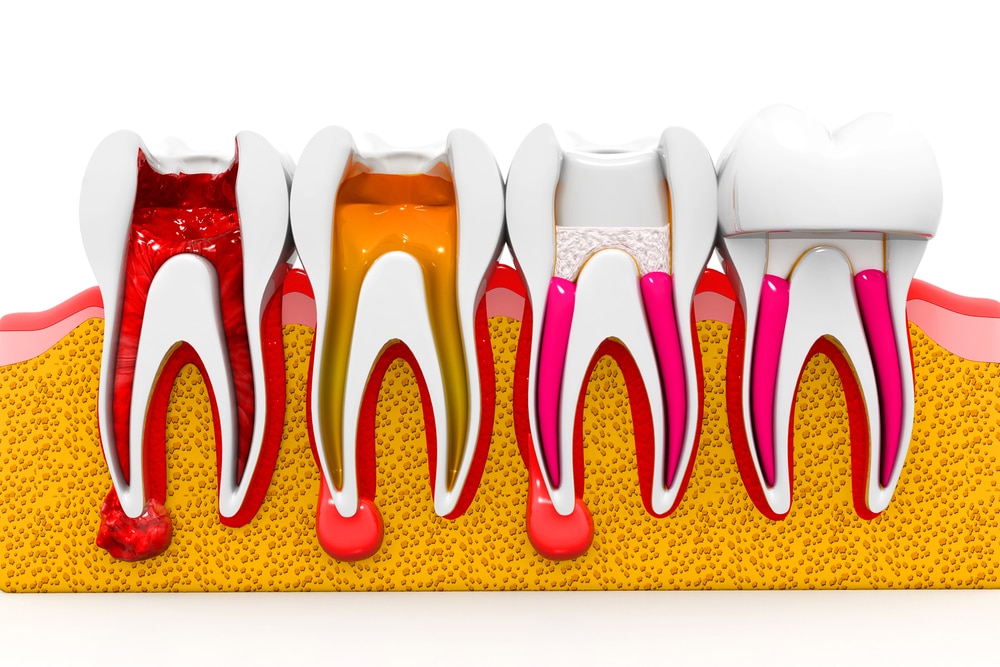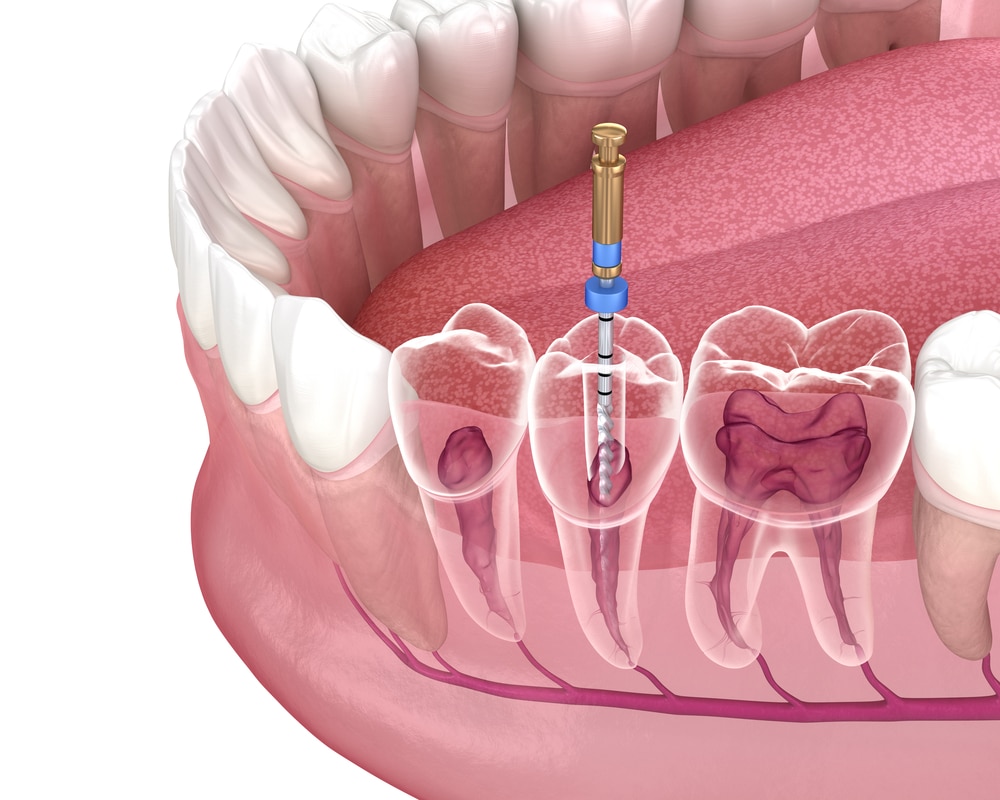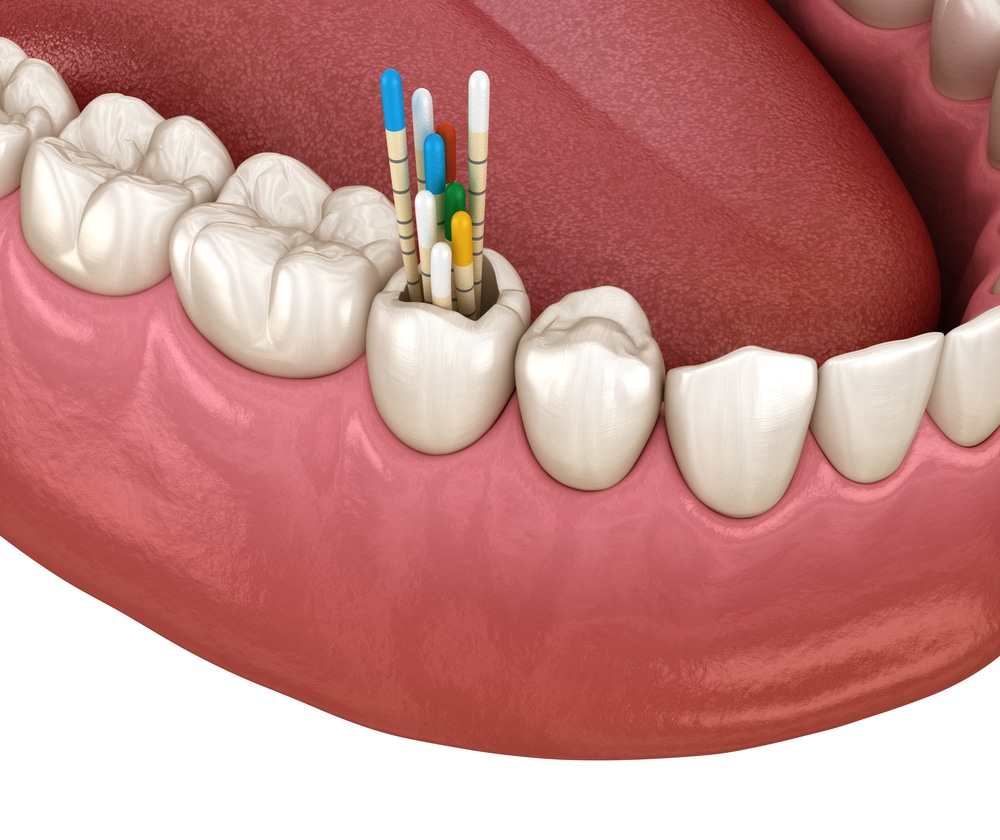
Restorative Dentistry
Gentle Root Canal Therapy in North Vancouver
Are you suffering from tooth decay or dental trauma? We can help! Our experienced team can perform advanced root canal therapy to help you regain optimal dental health. We’re in your corner and will do everything we can to make your root canal treatment as comfortable and stress-free as possible. Please contact our office to schedule your consultation!
Root Canal Therapy 101

Every year in Canada, root canal therapy is performed more than one million times. This common, but sometimes misunderstood, procedure is performed to save damaged or diseased teeth and maintain smiles.
When a tooth undergoes dental trauma or has a severe infection, root canal therapy is a treatment that can preserve the tooth to prevent it from being extracted in the future. Many patients report feeling almost-instant pain relief after their root canal is complete. Having a damaged tooth can cause serious discomfort and sensitivity. With root canal therapy, we can quickly and efficiently get patients back to enjoying a healthy, pain-free smile.
What To Expect
First, we’ll thoroughly numb the area around your tooth and administer any sedation that was decided on during your consultation. Then, we will make a small hole in the top of your tooth to access the damaged pulp inside. We’ll remove the pulp and thoroughly clean out the inside of the tooth. Once this step is complete, we fill in the tooth’s now-empty canals with a durable material called gutta-percha to preserve the tooth. After the gutta-percha is in place, we’ll seal the tooth and place a crown over it if needed.
Why Are Root Canals Performed?
The Greek word for inside (“endo”) and tooth (“odont”) combine to form endodontic. Root canal therapy is an endodontic procedure, meaning it is performed on the interior, or pulp, of the tooth. This is done when the pulp is damaged or diseased. The pulp is removed, while the structure of the tooth is preserved.
How Long Does It Take To Do A Root Canal?
Typically, a root canal can be performed in 60 to 90 minutes, meaning it can be done in one or two visits. Occasionally, depending on the location of the tooth, the extent of the infection, and certain other dental issues, it may take longer.
Signs You May Need Root Canal Therapy
Wondering if you’re a candidate for root canal therapy? Here are some of the most common symptoms that point to the need for a root canal:
Caring For Your Teeth After Root Canal Therapy

Root canal therapy will necessitate a few days of recovery, during which time you can follow your normal dental care routine, but should be gentle with your teeth. Avoid hard foods and cut back on sugary or acidic beverages.
It is normal to feel some pain or discomfort following the procedure, but most patients find that simple acetaminophen or ibuprofen offers relief. If they do not, or if the pain seems excessive, contact your dental professional.
When Do You Need A Root Canal?
There are several indicators of when a root canal might be warranted, such as:
What Risks Are There With A Root Canal?

Root canal therapy is a common procedure that carries few risks, however, some issues may arise. If the damage to the tooth is too severe, a root canal may not be able to save it. There is also the possibility of an abscess forming if some of the infected material is missed and remains behind, or if the prescribed antibiotics prove ineffective.
A root canal is still frequently believed to be a painful procedure, but with today’s medical advances, there is little cause for concern. For most, a root canal will be similar to receiving a filling and will actually save you from the greater pain to be suffered from a damaged or decaying tooth.





